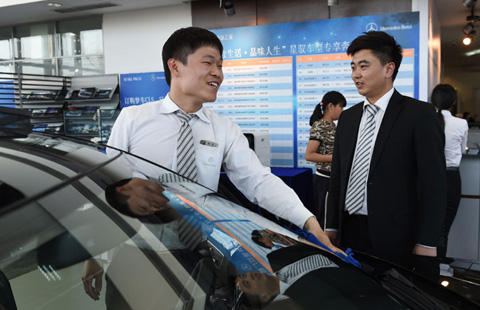Convenience stores to lead retail push
By Wang Zhuoqiong (China Daily) Updated: 2015-05-22 07:51Lawson is also moving into big cities like Beijing, Chongqing and Dalian with this model that focuses on collaborations with large-scale licensees. By doing so, if successful, it could expand businesses in the north, east and northeast markets.
According to the China Urban Convenience Store Index 2015 released by the association, the stores in the southern region of the country are better performers than the ones in the northern part, while coastal cities are better than the inland cities.
The index, based on data of convenience stores in 34 major and medium-sized cities in the country, found that Shenzhen and Guangzhou are the leaders while Fuzhou in Fujian province in the eastern region and Tianjin are the laggards in the ranking calculated on the basis of density, growth, conveniences and policy support.
Licensing has helped Lawson gain an edge in expansion and it seems the best option to increase its presence in China. "The profitability of convenience stores lies on their business scale and layout," Miyake said.
However, because of the large scale, it is really hard to roll out incentives to retain staff. Licensing would help solve this challenge, he said.
The experiences and know-how of the directly owned stores will be passed on to the licensed stores, providing them with updated products, logistics and management system, Miyake said.
Lawson's licensed stores take up half of their current 360 stores in Shanghai. In Japan, only 8 percent of their 12,000 stores are directly operated.
About 60 percent of operators have developed their own brand products. But this part of products takes much lower percentage of their total sales. The real task is how to improve the overall sales and gross profits, said Pei from the China Chain Store & Franchise Association.
Lawson is also working with large-scale licensees in local regions, especially those who know the area well, to identify good locations and to participate in the operations and management, as well as in building up self-owned brand food manufacturing.
- China aims to be leader in robotics
- CIC subsidiary to focus on overseas targets
- Top 10 highest-paid white-collar jobs in China
- Women buying into online economy
- Chinese firms lift US employment
- Rural e-commerce portal is first to target domestic farmers
- China hastens fiscal spending to boost economy
- Made in China, reincarnated

















